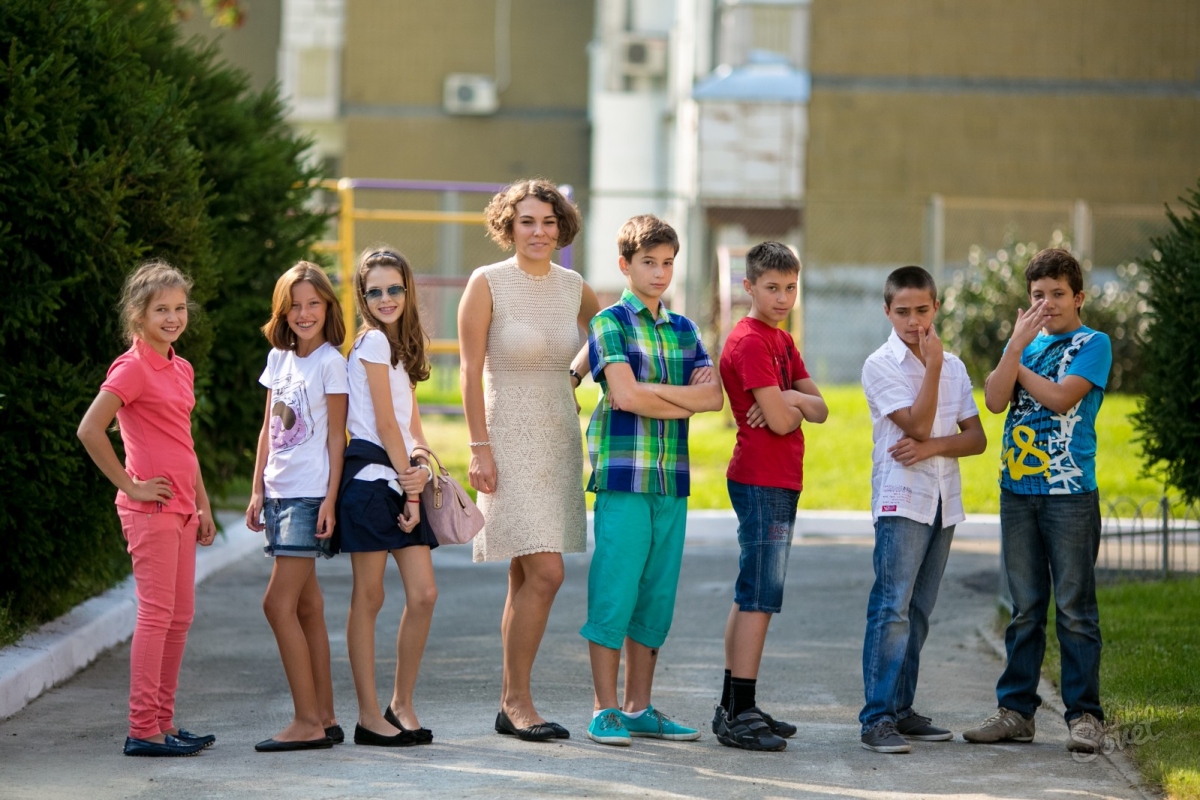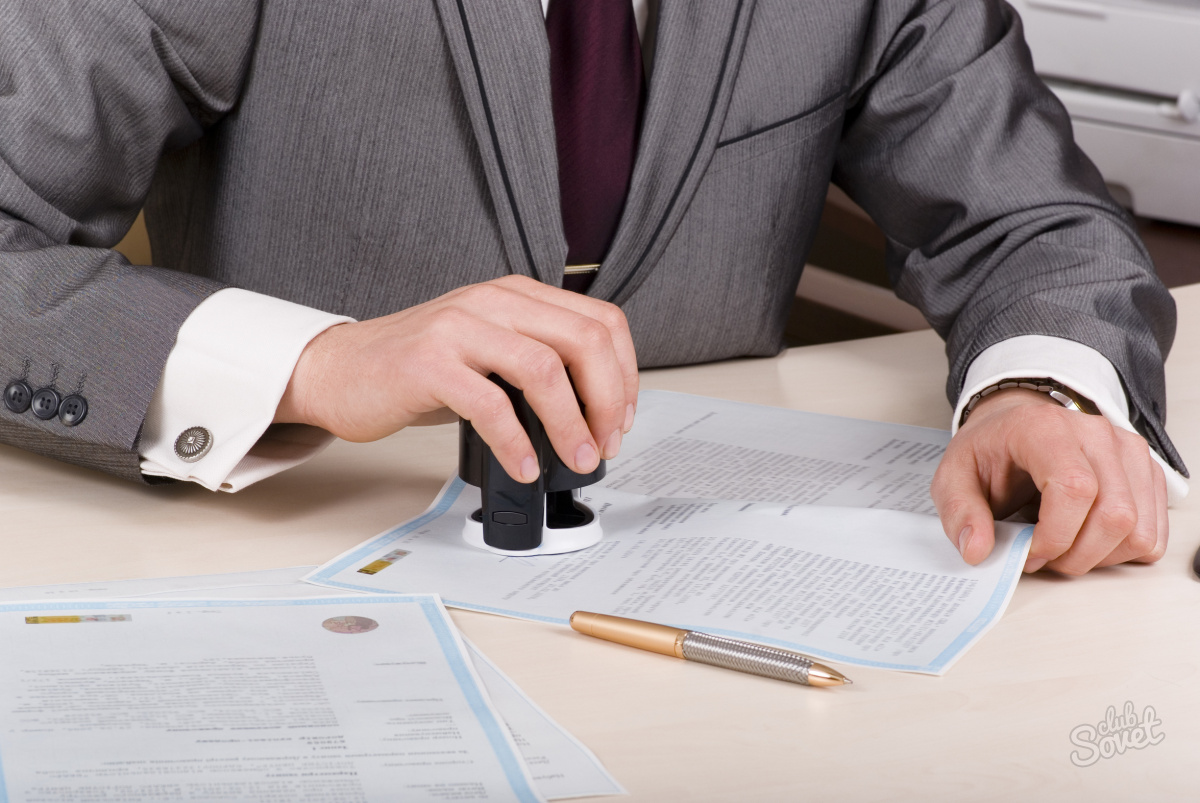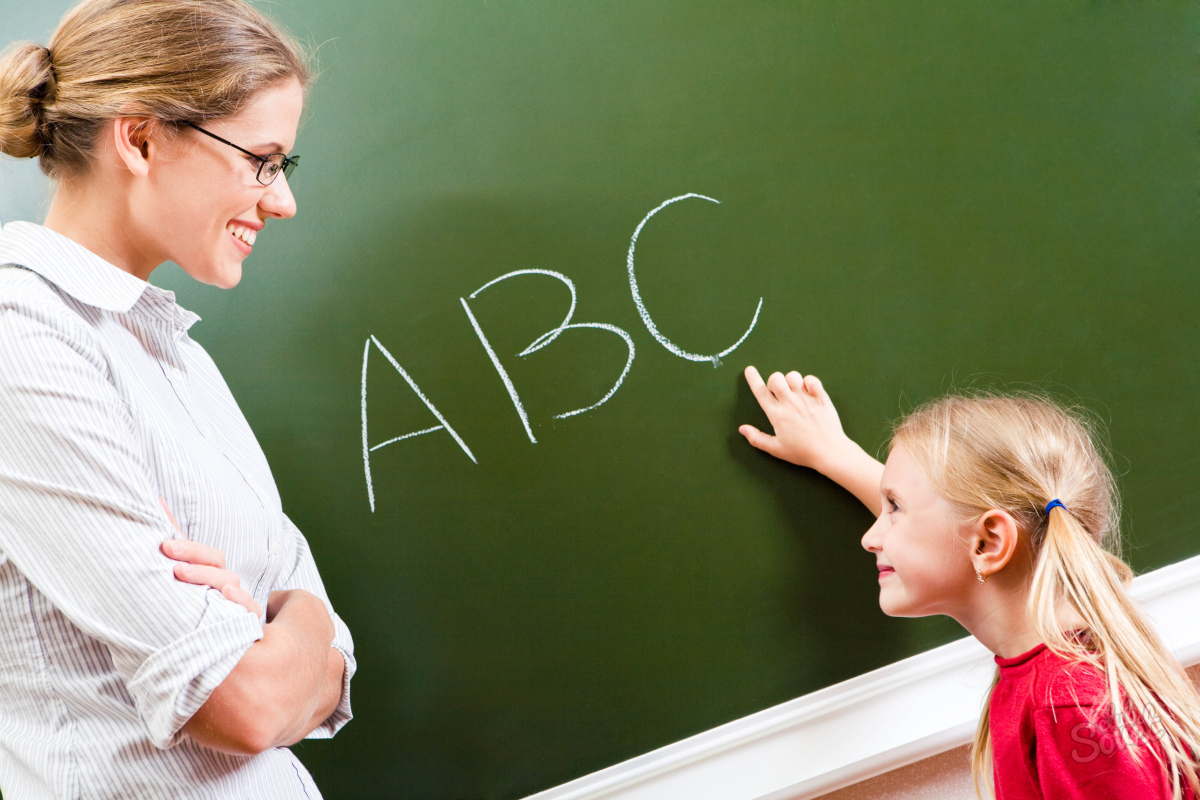How to open a private children's school. How to open a private school: step-by-step algorithm.
Education was, is and will be one of the most important stages in the life of every person. It is not surprising that every conscious parent tries to choose the best educational institution for their child. Often this choice falls on private school. But since there are not too many private educational institutions these days, more and more entrepreneurs are thinking about starting a career in this industry. Unfortunately, in reality everything is much more complicated than in words. To open a private school, you need to go through a fairly long and labor-intensive process.
According to experts, to open a private school it is important to follow three golden rules: powerful and independent sources of funding, a separate building with a sufficient amount of territory (meeting all standards and requirements), your own method of education and training, that is, the so-called “trick” of your school establishments.







This is the hard road to opening your own private school. If you love your business and dream of making it a reality, act without fear! Everything will work out.
Many of us have to face the problem of choosing a school for our children. Often parents have to transfer their child from one school to another. The reasons for this may include: extortion of money supposedly for the needs of the school, conflicts with the director, and ever-increasing cases of assault by teachers. In this regard, the thought of a private school involuntarily comes to mind, but there is no complete confidence that a child there will still be able to receive a decent education, and the price is steep (about $10,000 per year)…
Which school to choose: private or public? According to a study by Topschools (a Begin Group company), among those who chose a private school, 67% believed that they did the right thing, but 42% considered their experience a bad one. There are a lot of rumors surrounding non-state education, and those who have never encountered private schools treat them with distrust. What exactly is a Russian private school and how does it work? And can this be called a business?
The first private schools began to be created in Moscow in the early 90s and took the form of cooperatives. After the Law “On Education” was adopted in 1992, these institutions were assigned the official status of NOU (non-state educational institution).
In accordance with the law, non-profit organizations are non-profit enterprises. Consequently, there are certain restrictions for them regarding economic activities and profit distribution. Income items for a private school include entrance and monthly fees, sponsorship, government subsidies, and grants.
Many experts argue that a private school can hardly be called a business.
Very often people open a private school, but not at all for profit, but so that their own children can receive an education there. There are also companies, such as Gazprom, for example, that open schools for the children of their employees, without requiring excess income from them, and even subsidizing them.
This “business” needs government support like air; without it, it simply would not be able to survive. The rent at which the school is provided with premises is much lower than the market price. Previously, however, material support was unstable, but not so long ago in Moscow they introduced standards for financing non-state schools. Now, knowing the number of students, it is possible to calculate the amount of funds allocated down to the penny.
Until recently, private schools had significant tax breaks. But amendments to the law “On Education” and a new Tax Code came out, which deprived non-state educational institutions of basic tax privileges. Now it must pay taxes on profits (if any), land and property - just like, for example, oil companies and banks. The only good news is that private schools are exempt from VAT.
LEU receive state support, but it cannot be said that it is a big concern. Recently, officials have at least become accustomed to the existence of private schools, whereas previously they were often shocked by this.
“Veterans” of the school business, working in the private school education market for 10-15 years, as a rule, own the premises. This allows them to significantly develop their equipment and provides some guarantees of stability. You can invest money in renovating a rented premises if the lease term is at least 10 years, otherwise you shouldn’t do it. However, nowadays it is rare that any landlord is ready to enter into an agreement for such a long period.
It's not easy for schools renting premises right now. There are cases when schools were “thrown out” of the rented building in the most brazen manner, even before the expiration of the contract.
The lack of ownership rights to the premises is one of the main restrictions for this type of activity. Even those schools that have been relatively lucky with their lease terms complain of a feeling of instability.
If the authorities suddenly need the premises of former kindergartens, then first of all private schools are kicked out. In addition, the preferential rental rate, canceled in 2006, hit the NOU hard. And prices for education in private schools immediately jumped by 30-40%.
The number of private schools in Moscow remains stable from year to year. This is due to the fact that some schools are closing, while others are starting to open. The market for private school education in Moscow, according to many, is not yet saturated, but this business still attracts few people.
And the point here is not so much the difficulty of obtaining a license, but rather the choice of premises suitable for educational needs. To obtain a license, it must comply with all the requirements of Rospotrebnadzor, fire safety and licensing conditions, approved, by the way, back in 1993.
Although the conditions for obtaining a license themselves are devoid of any cavils, experts say.
It is important to note that the tuition fees set by schools are not taken out of the blue.
The laws of the market rule here. One school's tuition might be $500 a month, another's $2,000, and that doesn't necessarily mean there's a big difference in the quality of education. However, there is a price limit below which it is no longer possible to obtain a decent education. After all, good teachers will not work for an idea for free. By the way, it is wages that can become a criterion in determining the quality of education in a school.
What is the minimum cost of studying at a private school in Moscow, without losing the quality of knowledge? Experts call the amount 15 thousand rubles per month.
The specifics of education also place demands on school administrators. The director is always between two fires. In order to have the right to issue a state certificate, you must meet state standards. Parents, in turn, demand something completely different: more English, drama, economics, computer skills. You have to please both of them, carefully thinking through the program. The activities of private schools depend on demand, but the market requires one thing, and the ministry demands another. So you have to be flexible when making decisions.
A private school also requires high quality teaching. Finding qualified specialists is quite difficult. Moreover, a high salary is not a universal remedy, although in some cases it helps. Teachers at non-state educational institutions are much closer to parents and their children, this is facilitated by constant meetings at which it is explained where fees are spent: monthly and entrance fees (their value ranges from 30 to 60 thousand rubles)
The head of the school can be either a director-teacher or a non-teacher. Which is better is still unknown. The director must also be a communicator, marketer, entrepreneur, and even partly a politician. For the effective functioning of an educational institution, investments are needed. But only the teacher understands what kind of investment this should be. A manager whose goal is only financial return and cost reduction will not achieve success, but rather the opposite. Parents are ready to pay for something significant, and this is not only household services and good food, but also academic success. And this is much more difficult to provide than four meals a day.
However, the opposite also happens. Teachers have a lot of first-class ideas, but... they simply don’t know how to make money and they’re not good managers. In this case, the school is also doomed to close. Thus, a successful leader is one who is ready to invest and knows how to earn money.
Every year, schools have to pass some kind of exams to the parents of students. There is competition between schools for a profitable client. We have to build a certain image for parents: victories at competitions and festivals, participation in Olympiads, number of medals, high-tech equipment, landscaping. Many schools have swimming pools, gyms, three to five meals a day and even theaters and courts. Parents also strive to protect their children from the influence of bad company. Therefore, many schools look not only at the solvency, but also at the adequacy of children and their parents.
Parents choose a school based on the following criteria:
School reputation (57%)
Teacher qualifications (55%)
Close to home (43%)
Excellent education has always been in great demand and relevance - both centuries ago and today. Therefore, truly talented and gifted teachers often think about how to open a private school, which could become an excellent alternative to modern educational programs, because they are often ineffective and therefore do not suit either students or their parents.
Advantages of private schools
In large cities of Russia, private schools are extremely popular. Their advantages over regular secondary schools are obvious. By enrolling in such educational institutions, children receive a better and more comprehensive education. In addition, here students are provided with absolutely every opportunity for intellectual, physical and creative development with an individual approach.
What is needed to successfully open a private school
If you are very attracted to the idea of creating your own private school, you should keep in mind that you have to go through a rather difficult and responsible path - to prepare the necessary official documentation and take into account every nuance. With the right approach, you can soon count on the best results.
Before opening a school of this type, it is necessary to find out what important features are characteristic of it and how it differs from ordinary public schools.
Do everything possible to ensure that the private school you create stands out from all its competitors, and then its success will be guaranteed.
Private School: Video
The article comprehensively reveals the features of opening a private school. The material presents an up-to-date analysis of the modern market and consumer demand, provides explanations of the legal aspects of activity and taxation, and lists the main regulatory requirements for the premises and the educational process.
A private school is an institution that provides educational services (including those that meet state education standards) on a paid basis. Russian system private school education was fully developed by the beginning of the 20th century.
Modern history private schools dates back to 1992 - a period of educational reforms and a qualitative change in the demands of society. It was at this time that, as an alternative to the stagnant “learning support” system, innovative teaching began to develop, implemented, for the most part, in non-state schools.
Main characteristics of the modern private school market
Private education in Russia covers just over 1% of school-age children. Most of similar educational institutions are located in Moscow and the Moscow region, as well as in St. Petersburg: thus, in general, the Russian market for such services is not yet sufficiently saturated. Let us consider the main features characteristic of modern non-state school institutions (data as of 2013).
More than half of private schools have kindergartens, and the vast majority of institutions provide services to prepare children for school.

Qualitative components of education in a private school:
- small classes that provide sufficient attention to each student;
- comfortable conditions for the child’s stay and education;
- developed infrastructure - schools may have a swimming pool, a multifunctional hall for sports activities, well-equipped computer classes;
- flexible curriculum;
- highly qualified teaching staff;
- special teaching methods aimed at developing in children such necessary modern qualities as communication skills, leadership and business activity;
- expanded range of subjects studied - in addition to general education, additional classes can be conducted in the following disciplines: foreign languages, linguistics, law, economics, humanities, theater arts, vocals, dance, etc.
- the possibility of a child being at school throughout the working day and even on full board;
- the most successful schools are focused on prestigious universities (including foreign ones); students undergo training in special programs designed to prepare them for admission to the relevant higher education institution.
The income structure of private schools is: monthly tuition fees, entrance fees, fees Additional services, as well as other income - sponsorship, grants, etc. Most of the profits received are spent on paying wages employees, for the development of training programs and coverage current expenses.
Features of consumer demand for the service
Private school students are children of parents with high and middle incomes - entrepreneurs, businessmen, and intellectuals. At the same time, the motivation for attending a private school of only parents comes from the awareness that a good education for a child it is an investment in his future. Other parents want to create the most comfortable and safe conditions education for your child. There are also people for whom educating a child in a prestigious institution is an indicator of status.
By what criteria do parents choose a school? This is, first of all:
- school reputation;
- qualifications of teaching staff;
- number of children in the class;
- proximity to home;
- material base;
- availability of a license, accreditation;
- reviews from friends.
An interesting fact was revealed during marketing research: if it is necessary to save on any of the above factors, parents do not reduce their requirements for such criteria as the number of students in the class and the location of the school.
When choosing a private school, consumers also study such issues as opening hours of the institution, teaching additional popular foreign languages (for example, Italian or Chinese), availability/quality of food services, opportunities for organizing leisure time for children, Unified State Exam results, the presence of established relationships with universities. Normative base
The activities of private schools are regulated by the following regulatory documents:
- Decree of the Government of the Russian Federation "On approval of the Rules for the provision of paid educational services";
- Decree of the Government of the Russian Federation "On approval of the Model Regulations on a General Educational Institution";
- Order on the procedure for certification of teaching staff;
- Technical regulations on fire safety requirements;
Business registration, taxation
According to the Law on Education, a general education organization (one that provides primary, basic and secondary education) cannot be commercial, and, therefore, must be created in the form of non-profit organizations. In this case, the type of educational institution must be indicated in its name. In addition, keep the general educational activities Individual entrepreneurs can also do so - personally or with the help of attracting outside teachers.
For a private school, OKVED codes are suitable:
- 80.10.2 - “Primary general education”;
- 80.10.3 - “Additional education of children”;
- 80.21.1 - “Basic general education”;
- 80.21.2 - “Secondary general education”.
Taxation is optimally carried out in the form of the simplified tax system (income-expenses). When planning a business, we also advise you to pay attention to Article 284.1 of the Tax Code of the Russian Federation, which provides the opportunity for educational and medical institutions to use a zero rate for income tax.
Licensing, accreditation, certification
License. In order to obtain the right to conduct educational activities, a private school must have a license that confirms the compliance of the conditions of the educational process with all available regulatory requirements. Moreover, not only organizations, but also individual entrepreneurs are required to obtain a license. Exceptions are made for entrepreneurs who conduct educational activities independently, without the involvement of other teachers - such individual entrepreneurs do not need a license.
You can view the current list of documents required to obtain an educational license and the requirements for them on the website of the Moscow Department of Education or in the relevant regional offices. Let us also note that in the case when a licensed medical organization is not involved in the operation of the school medical office, the school must also obtain a medical license.
Accreditation
Regarding the accreditation of schools, it must be said that this is a voluntary procedure. However, it is precisely this that determines the status of an educational institution, giving it the right to issue its graduates a state educational certificate. Otherwise, students will have to take their final exams at another school that has the appropriate permits. This is not always convenient and can be considered by potential consumers of the service as a negative factor.
The purpose of state accreditation of a private school is to confirm the quality of the educational service provided and its compliance with state education standards. School accreditation is a regular procedure that must be carried out at least once every six years (Moscow state accreditation website). It includes several stages, but should not last more than 105 days.
We present a detailed accreditation scheme developed by the Moscow Department of Education.

Certification
Another important procedure confirming the quality of services of a private school is the certification of its teaching staff. It is mandatory: every five years, teachers are required to undergo certification to confirm the right to occupy their position or assigned category.
An exception is made only for teachers who have worked in their position for less than 2 years, as well as pregnant women and women on maternity leave: such employees undergo certification later.
Premises, SanPin and fire service requirements
The ideal premises for organizing a private school is a privately owned separate building with an area of 1.5 to 2.5 thousand square meters. meters, having a large surrounding area, parking, good access roads and located next to prestigious residential areas. Of course, it must meet all sanitary and fire services:
- School buildings are allowed to be located in residential areas away from roads, garages and any transport facilities. There should be no main city communications on the school grounds.
- The surrounding area is landscaped at least 50% (with the exception of the northern regions), fenced, and artificial lighting is provided.
- The area around the school is zoned as follows: space is allocated for a physical education and sports zone, a recreation area and a utility area. The sports area must be equipped with areas for physical education.
- Newly constructed school buildings should be designed for teaching only one shift. The height of classrooms cannot be less than 3.6 meters. The area for classes is allocated at the rate of 2.5 to 3.5 square meters. meters per student.
- Primary classes are located in a separate educational block with access to the school grounds. For first-graders attending an extended day group, it is necessary to provide sleeping rooms (separate for boys and girls) at the rate of 4 square meters. meters per child. The first class is located no higher than the 2nd floor, and from the 2nd to 4th classes - no higher than the 3rd floor.
- The first floor of the school should be occupied by: a locker room, a gym (at least 6 meters high), and a medical office. There should be a toilet for boys and girls on every floor of the school.
- Furniture must be ergonomic, safe and appropriate for the age of the students.
- Permissible temperature conditions: for classrooms, the lobby, locker room, library, dining room, recreation - from 18 to 24C°, for the gym and workshops - from 17 to 20Cº, for bedrooms, playrooms - from 20 to 24Cº, for showers - 25Cº , for medical rooms - from 20 to 22Cº;
- The school is equipped with fire extinguishing equipment. The decoration of the premises, equipment, and furniture must be made from non-combustible materials. It is not allowed to burn garbage or leaves in the adjacent territory - they must be removed and removed in a timely manner. Smoking is strictly prohibited, both in the school building and on its territory. Evacuation routes, the entrances to the school must be free. It is not allowed to use non-standard heating devices. Special attention It is necessary to devote attention to the chemistry room and the reagents stored in it.
Basic sanitary requirements for the educational process:
- Students are admitted to school from the age of 6.5;
- classes cannot have more than 25 students;
- classes cannot begin earlier than 8 a.m.;
- allowed number of lessons per day - 5 for primary school(except 1st grade) and 6 - for grades 5-11;
- there is only one per day test;
- the duration of the lesson cannot exceed 40-45 minutes;
- For first-graders, homework and grading are not allowed.
Equipment, equipment
The status of a private school and the level of services it provides, of course, presupposes the presence of modern high-tech equipment and equipment: high-quality furniture, electronic magazines and diaries, interactive whiteboards, multimedia tools, local computer network, availability of Internet connection, etc.
Analyzing the business as a whole, we can say that, despite the rather high cost of these services, it is promising and in demand. Taking into account the characteristics of consumer demand, knowing all the necessary rules and requirements, constantly improving the reputation of your establishment and analyzing the socio-economic situation, you can create a high-quality educational institution, bringing a decent income.



















